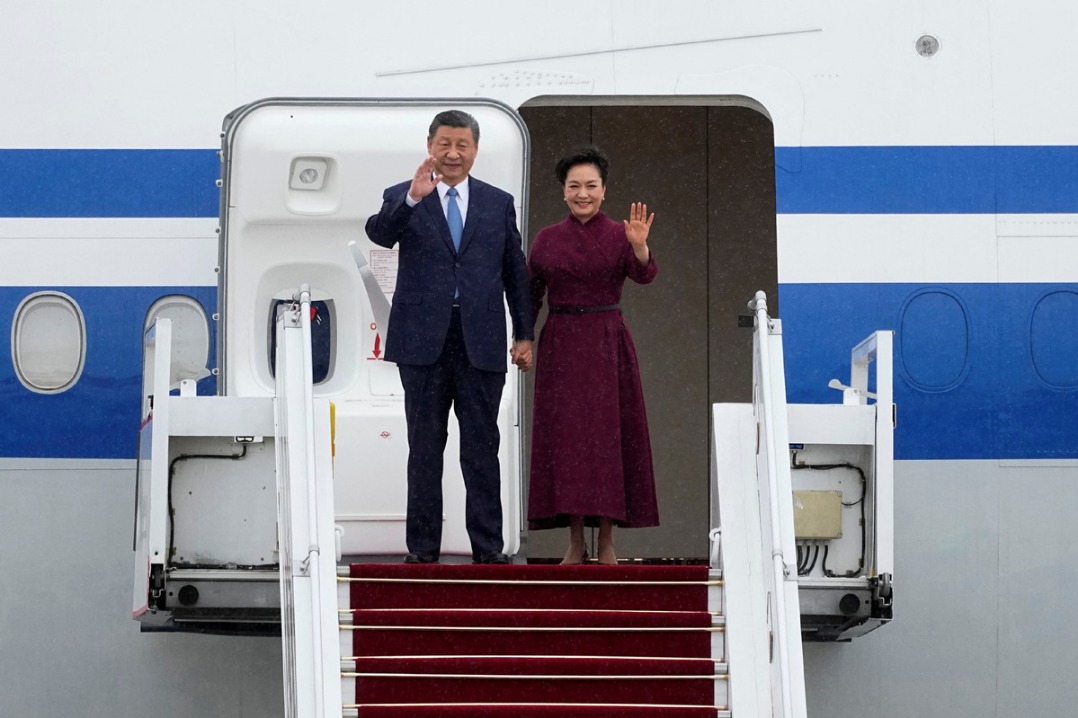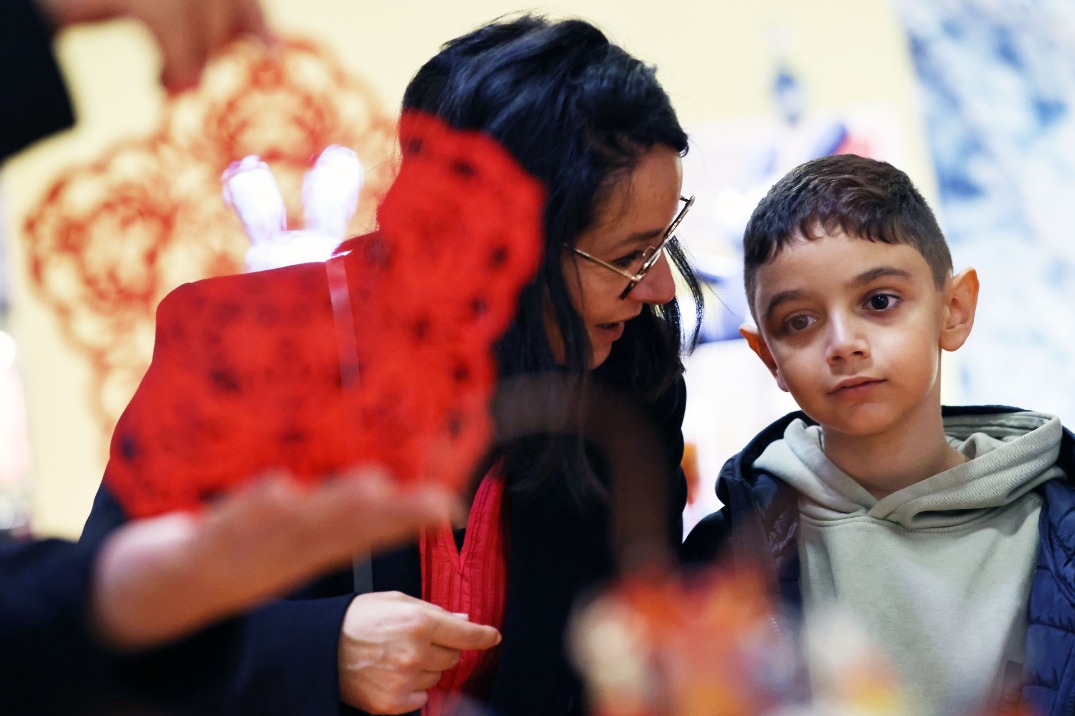To promote a community of common health
By WU GUODING | China Daily Global | Updated: 2020-04-14 07:56

China has the potential to further engage in and contribute more to global health governance
In its fight against the novel coronavirus pandemic, China has been working closely with other countries as well as international organizations such as the World Health Organization and the United Nations, contributing to global health governance. However, the country still faces some challenges in gaining recognition for its importance in global health affairs.
To address these challenges, it should formulate a global health governance strategy to match its global governance vision, which is to build a community with a shared future for mankind. In March 2020, President Xi Jinping proposed countries "build a community of common health for humankind" in a message of condolence he sent to French President Emmanuel Macro over the novel coronavirus pandemic. How to put the idea into practice? First, China should formulate a global health governance strategy that includes its orientation, subjects and methods. The strategy should clarify China's status in global health governance.
China has become the second-largest economy in the world and a key force in the global arena. Countries, especially developing ones, have high expectations for China to participate, even lead, in global health affairs. So it is China's duty to deeply engage in global health governance. On the other hand, China is still a developing country, and has problems to solve at home.
Given the current situation, China should participate in global health governance in a moderate manner. At the same time, it should actively contribute to global health governance as a responsible big country. China could make use of its advantages in some areas such as providing medical aid to other countries. Then, it could go further and seek a bigger say in global governance system reform. China has been taking part in global health governance mainly through official and diplomatic channels in the form of foreign medical aid, whereas the presence of non-governmental organizations is less felt. This is not in line with internationally-recognized practices in global health governance where NGOs are the major players. Therefore, China should encourage the establishment of more NGOs and remove the barriers for them to engage in the management of health affairs. Also, in addition to foreign aid, global health governance encompasses international cooperation, the discussion of major global issues and rulemaking. China should participate more in these activities.
China should also provide more resources, especially medical resources that suit its global governance vision. During the novel coronavirus pandemic, medical supplies such as masks, protective suits and ventilators have been urgently needed. Expanded production of medical equipment in a short time is only possible for countries with strong manufacturing capacities. China is the only country having all the industrial categories in the United Nations industrial classification, and world's top manufacturing powerhouse. Statistics show that in 2018, China contributed above 28 percent of world's total manufacturing added-value output, while the US accounted for around 18 percent. This allowed China to quickly expand production after the outbreak of the novel coronavirus and increase the supply of medical materials such as masks and protective suits, which has not only met domestic demand but also helped meet that of other countries. Statistics show that before the outbreak, China's mask production capacity was more than 20 million units per day, whereas after production expansion in response to the pandemic, the number soared to over 200 million. That is unimaginable for other countries.
China also has its weaknesses, however. Its enterprises don't possess the core technologies of some medical equipment. For instance, ventilators made in China only account for around one-fifth of the world total, which is far from enough to meet the needs of the entire world. The reason lies in that Chinese ventilator manufacturers have not yet mastered all the core technologies, and still import from Europe and the United States parts such as the proportional valves. The lack of these core technologies restrains China from further participating in global health governance. Another problem is that medical supplies made in China don't meet standards set by other countries. To solve this issue, coordination should be strengthened among countries.
Meanwhile, China needs to overcome headwinds such as the rise of anti-globalization sentiment and nationalism. Some countries have adopted a zero-sum mindset in dealing with global affairs, complicating global health governance work. Some countries and their media hold deep-rooted prejudice against China, attacking its political system and stigmatizing it. Since the outbreak of the virus, some Western countries have fueled conspiracy theories surrounding the source of the virus and criticized the effective efforts China has taken to contain the spread of the contagion. They even said China harbored ulterior motives while aiding other countries in their fight against the pandemic.
In a word, China still faces some challenges in taking part in global health governance. To overcome these challenges, China should formulate a global health governance strategy, master more core technologies for medical supplies, and make more efforts to publicize its actions on health to change the attitudes of other countries.
The author is an associate researcher with the Institute of World Economics and Politics at the Chinese Academy of Social Sciences. The author contributed this article to China Watch, a think tank powered by China Daily. The views do not necessarily reflect those of China Daily.
























